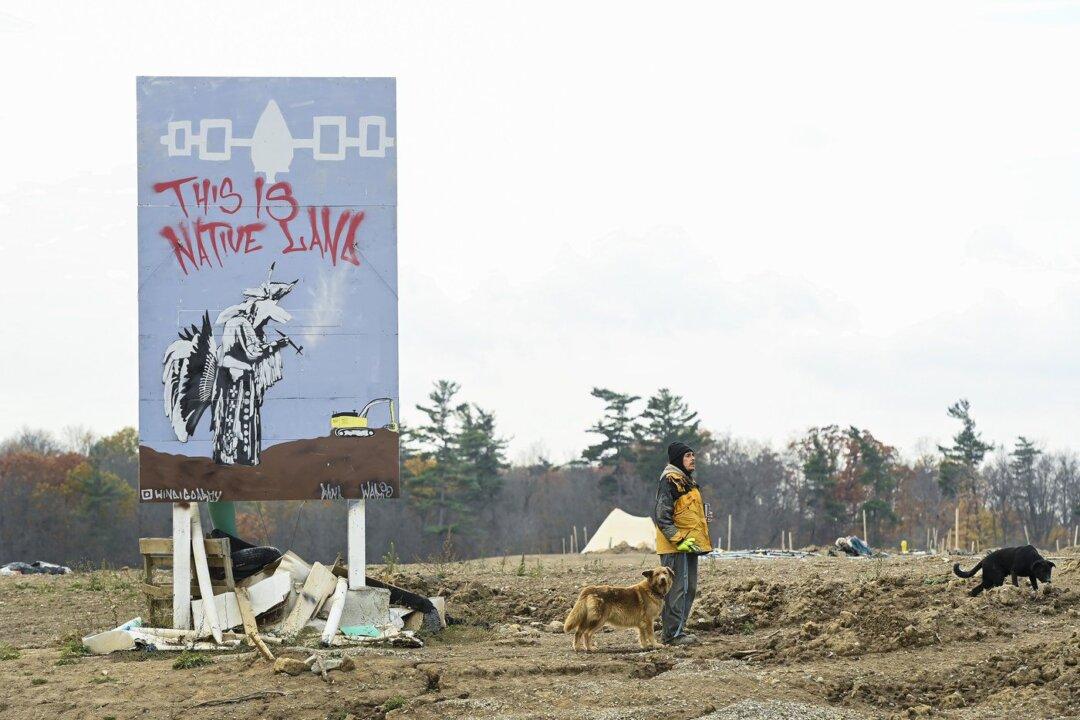More than two years after a group of indigenous demonstrators started occupying a proposed development site in southwestern Ontario, a provincial court has again granted an injunction permanently barring them from the land.
In a written decision released this week, Justice Paul Sweeny of the Ontario Superior Court said Skyler Williams and two other unnamed defendants in the case are not authorized to act on behalf of the Haudenosaunee to claim treaty rights to the site near Caledonia, Ont., and Six Nations of the Grand River.





